DuPage Forest Preserve District's Wonder Women
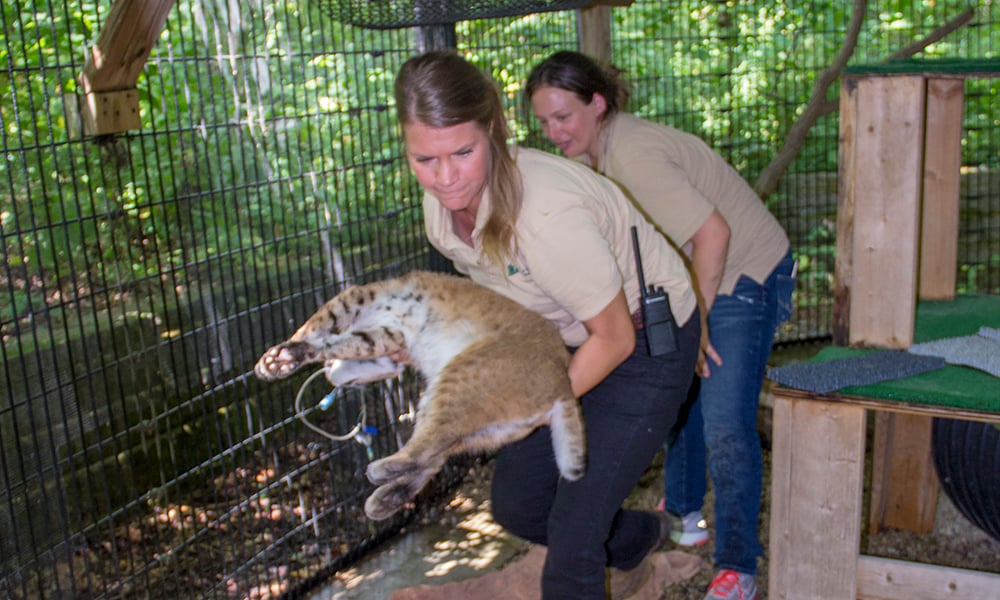
In honor of Women’s History Month, we’d like to tip our hat to the women who work at the DuPage Forest Preserve District.
We asked a handful of them about their work and what advice they would give to girls and young women who are thinking of pursuing careers in nature or STEM-related fields (science, technology, engineering and math). Here’s what they told us.
Jen Rydzewski, M.S. in natural resources and environmental sciences, M.A. in zoology
Naturalist at Fullersburg Woods Nature Education Center
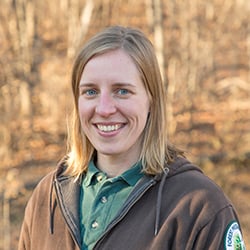 Learn by doing. When you find something that interests you, try it out!
Learn by doing. When you find something that interests you, try it out!
I suggest joining clubs related to your interests in high school and college. I volunteered at a wildlife rehab center and worked at a vet’s office part-time in high school because I’ve always loved animals. I joined The Wildlife Society where I shared information about wildlife in classrooms and volunteered for field science projects in college. That’s how I discovered I liked teaching about nature as much as I loved learning about nature and conducting research.
Seek out mentors who can offer advice and guidance, so you can learn what it’s really like to work in your area of interest. Ask questions, shadow someone for a day, help with a project.
Internships and seasonal jobs are a great way to gain experience and discover your passions. Short-term opportunities are a good way to you discover if you don’t like something you thought you would because you can always explore something new. Some of my internships and seasonal jobs included working for animal control, conducting field research tracking ground squirrels, studying salmon, leading summer camps, and learning to become an environmental educator. 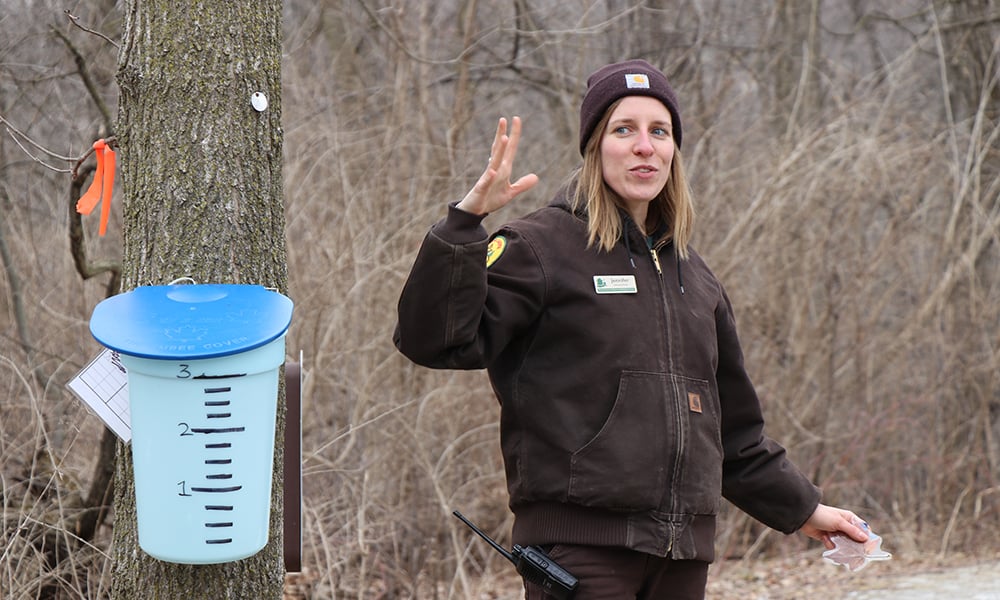
Jen Rydzewski, naturalist at Fullersburg Woods Nature Education Center, talks about turning maple sap into syrup.
Keriann Dubina, M.S. in biology (ornithology), master naturalist, certified interpretive guide
Naturalist at Fullersburg Woods Nature Education Center
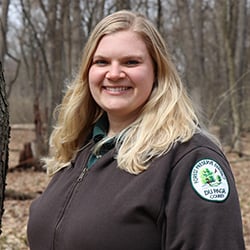 Gain experience, volunteer and be involved as much as you can. This is a great field that fosters learning and there are always opportunities to do so.
Gain experience, volunteer and be involved as much as you can. This is a great field that fosters learning and there are always opportunities to do so.
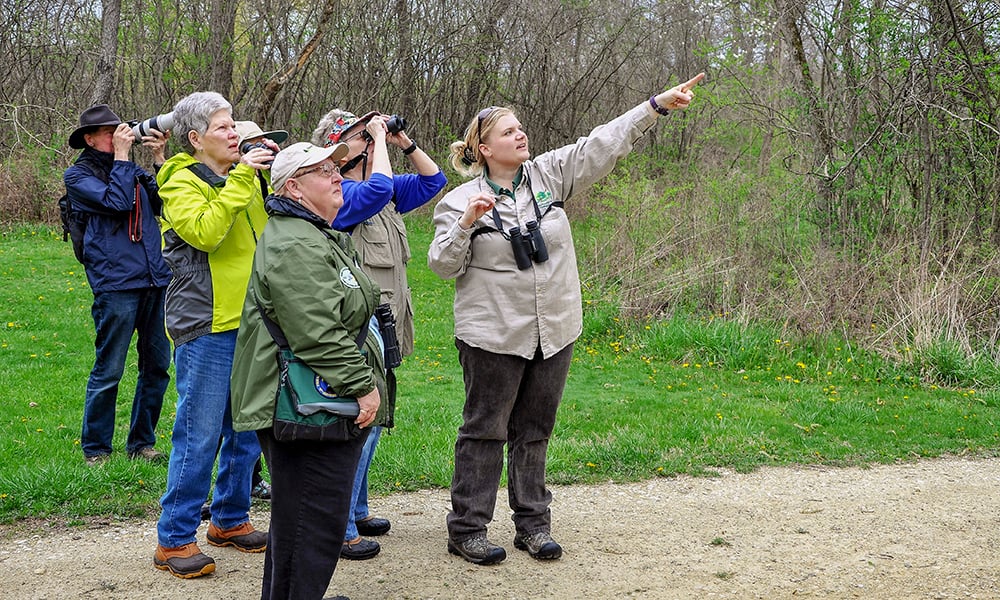
Keriann Dubina, naturalist at Fullersburg Woods Nature Education Center, leads a bird walk in a DuPage forest preserve. Photo by Jeff Reiter
Abby Dean, B.S. in outdoor recreation and resource management
Naturalist at Fullersburg Woods Nature Education Center
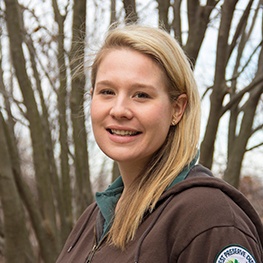
Surround yourself with others in the field. Networking is key to advancing no matter what industry you’re in. Find a mentor. Join STEM-related clubs. Get as much experience and exposure to the field you’re interested in. Start building a resume in college. Some of the best resume builders can be volunteer work and unpaid internships.
I grew up with more of a love of history and the arts. It wasn’t until later in college that I was exposed to ecology and natural history. After my first lab in the field I was hooked! The natural world has provided me with unceasing curiosity, as well as a sense of peace and connection. I decided that no matter what I did for a career, it had to be related to nature.
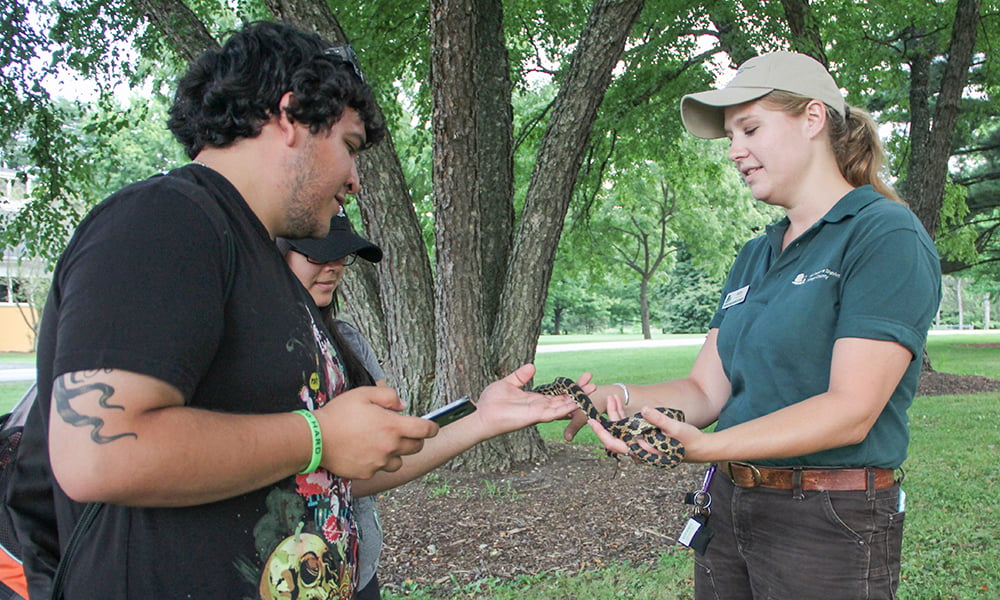
Abby Dean, naturalist at Fullersburg Woods Nature Education Center, shows visitors a snake at a DuPage forest preserve program.
Krystle Piwowar, B.A. in biology, certified interpretive guide
Naturalist at Willowbrook Wildlife Center
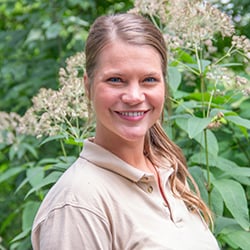 Navigate your interests and passions, then find opportunities where you can learn about them. I knew I was passionate about animals, so working toward a job at Willowbrook Wildlife Center gives me opportunities to teach about animals and work with them. I earned a degree in biology and spent time volunteering so I could really learn where my strengths could make a difference. Finding exactly where your abilities and passions can best be utilized is important when navigating a career, especially in a nature-related field.
Navigate your interests and passions, then find opportunities where you can learn about them. I knew I was passionate about animals, so working toward a job at Willowbrook Wildlife Center gives me opportunities to teach about animals and work with them. I earned a degree in biology and spent time volunteering so I could really learn where my strengths could make a difference. Finding exactly where your abilities and passions can best be utilized is important when navigating a career, especially in a nature-related field. 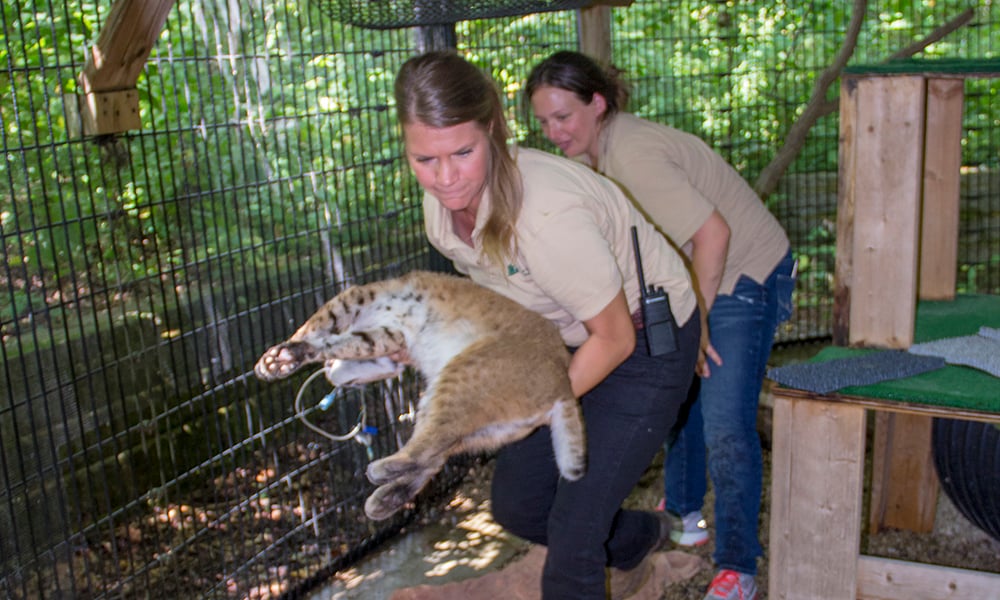
Krystle Piwowar, naturalist at Willowbrook Wildlife Center, carries a sedated bobcat to a scale so it can be weighed during a physical.
Leigh Korreck, B.S. in biology, certified interpretive guide
Naturalist at Willowbrook Wildlife Center 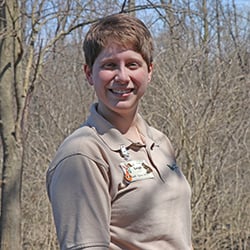 If you're not sure what you want to do, keep trying different things until something grabs your imagination. Once you find it, do everything you can to get experience: Do related jobs, learn all you can about it, and definitely volunteer!
If you're not sure what you want to do, keep trying different things until something grabs your imagination. Once you find it, do everything you can to get experience: Do related jobs, learn all you can about it, and definitely volunteer!
There is a trait that I have found to be VERY important: be flexible. Don't limit yourself. If you are open to change and new experiences, many more opportunities will present themselves to you.
Nature (specifically, my interest in animals) has influenced every career choice I’ve ever made. Nothing fascinates me more except perhaps for astronomy (and I guess you could call that nature in space).
Whether it was in a veterinary hospital, zoo or nature center, I have strived to take care of animals and educate people about the unbreakable bonds between people, animals, and our environment.
I believe that knowing other animals and how we affect each other’s lives helps people feel at home in the world, less lonely in an isolating age. Nature is all about connection. Helping people find lasting connections to nature is arguably more important today than it has ever been, and I am thrilled to do this job at the Willowbrook Wildlife Center.
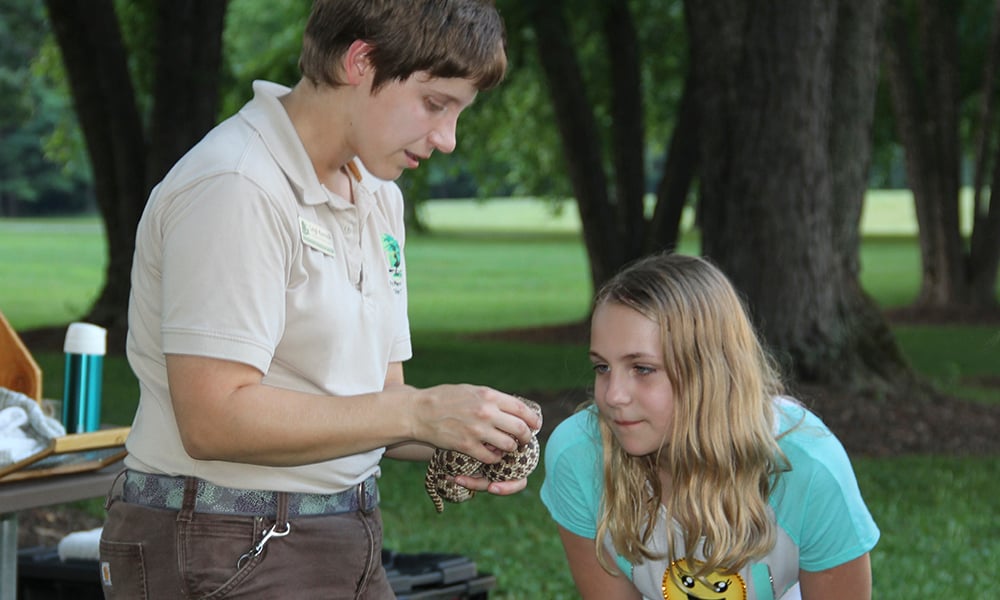
Leigh Korreck, naturalist at Willowbrook Wildlife Center, shows a visitor a snake at a DuPage forest preserve program.